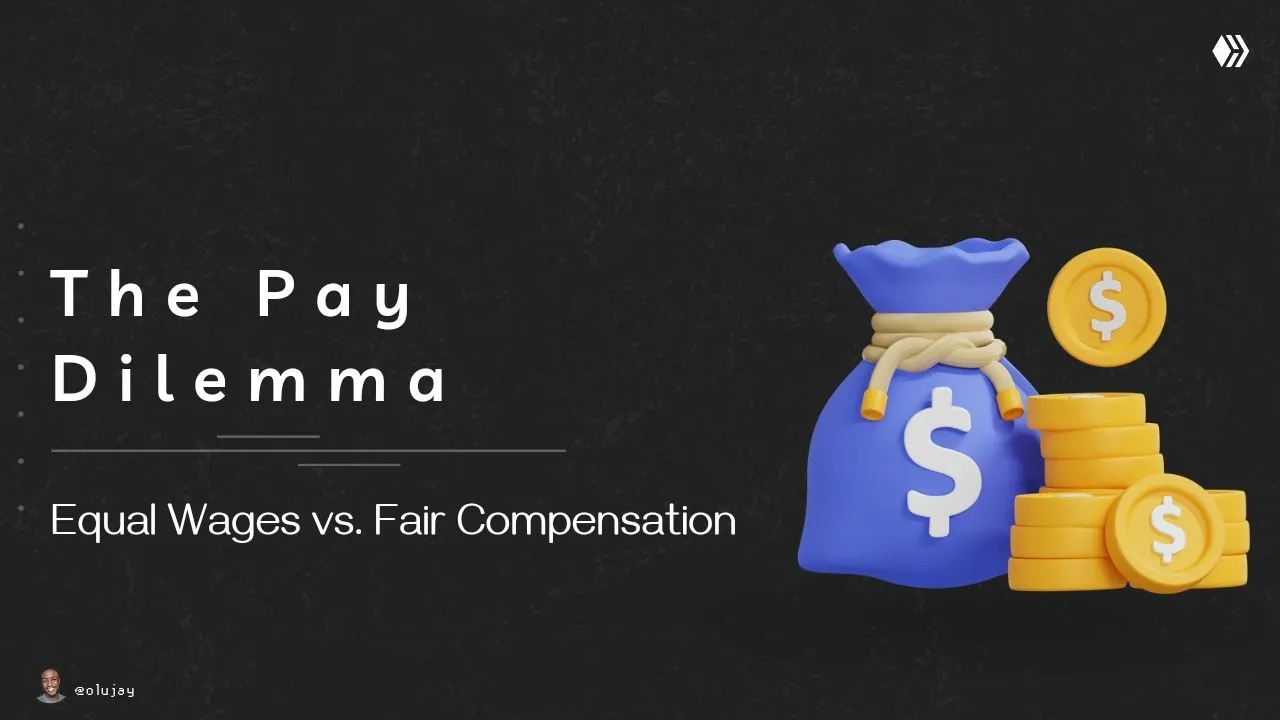"No food for a lazy man," as it is commonly said, implies that when you work, you earn, and that's how you afford what you need. The catch, however, is that should everyone get the same pay, or should pay be based on factors like how good you are at your job? Today, let's discuss equality vs. equity when it comes to pay.

Unless one is underage or is in an excusable condition or something, of course, they may have to be a beneficiary of some benefactor. The general populace of everyday people must act accordingly and work and earn to get by every day.
Equality in Pay
What it means to have equality in pay is that all workers receive the same wage, regardless of their job, skills, or experience. In general, this approach is often meant as a means to promote fairness and eliminate wage discrimination.
Considering how the world has been built and how it is run and that it is people with higher wages that are taken as upper-class workers, discrimination can set in in many ways. It does make sense in certain ways to want to take this approach, equality in pay.

The way humans are wired, however, is that our rewards and how they are given to work greatly impact their incentive to do things at a job. If workers know that they receive the same pay as their peers regardless of their effort and contribution, they may lack the incentive to improve their skills or even work harder.
We can all relate to statements resulting from that such as, "After all, why bother when I would get the same thing as those other guys that do way less?"
The truth of the matter is that not all jobs are equal in terms of skill, responsibility, or demand. One really cannot compare the responsibilities and required skill levels of doctors, nurses, and surgeons with one another, as they have varying levels of education, training, and specialization. Applying equal pay wouldn't just cut it in some cases.
Equity in Pay
Equity in pay, on the other end of the rope, means to be fair and just with pay. Wages would be adjusted to account for factors such as skills, experience, responsibilities, and performance. It accounts for fair compensation in relation to individual circumstances.
Jobs are usually not the same. There are always those who would do more and those who would do less. Effort can be subjective sometimes, but a general perspective of human capabilities can help provide a reasonable scale for rewarding efforts. Equity in this scenario can motivate workers to actually develop their skills and excel in their roles, as they see a direct correlation between effort and rewards.
Equity-based system is why a vast majority of youth are very interested in being "tech bros" or "tech sis." It is glaring how people in the field of technology are rewarded, owing to the large contribution they make to the world today with technology. Most jobs in the field of tech, as it is generally termed, are not exactly easy and direct jobs.

It takes a high level of perseverance, dedication, resilience, and competence—among many other qualities—to make headway and become successful at some point in their journeys. Hence, they usually earn more. Take our devs here on Hive for example. Clearly, many of them earn substantially more than we, the regular creators like myself, as they do quite a lot to make the Hive ecosystem run as smoothly as it does.
Determining what is equitable can be subjective in certain cases, however, and biases can creep into decision-making processes in most systems, leading to potential discrimination. And, also, things can get complex with equity-based systems, such that a large number of assessments may be required to determine fair compensations.
Dissatisfaction among workers with the perception of discrepancies in pay if there's a lack of transparency and effectiveness is another factor to consider, too.
Finding a Balance
In real-world scenarios, organisations tend to aim for a balance between equality and equity. One or the other may work in smaller organisations, though, but eliminating discrimination and ensuring fairness should be key, as long as diversity of skills and roles in workforces are recognised and considered. It all boils down to the organisation, its goals, and its values.